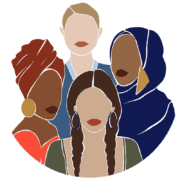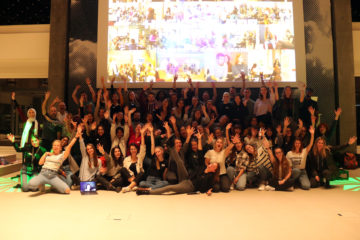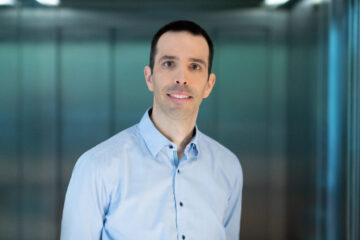Each month we have the honor of interviewing Women Who Inspire Us. This month, we’d like to share the inspiring story of Dr. Marianne Charaf who immigrated to Germany from Bolivia at the age of 14 and pursued a PhD in business informatics – despite the language barrier. Today, she is a successful partner at the IT consulting firm itopia AG. Marianne is also actively engaged in improving the situation of foreigners in Zurich as co-president and board member of the council of foreigners.
Marianne, why is language such an important element for a successful career?
Language is how we express our thoughts, our knowledge, and our opinion. If you don’t speak a language well you are challenged in proving what you know. Hard enough, the focus people set, might sometimes not be on the content of what you say, but on your accent, on how you say it and even the mistakes you make.
When I came to Germany at the age of 14 years, language was the biggest hurdle. In Bolivia I had good grades in school, I was best in class in Math and Sports. However, in Germany I could not prove it because I didn’t speak German. I wanted to contribute but I couldn’t.
My aim was to learn German without an accent, because it seemed to me that, specially in Germany, only if I could get rid of my accent, I would have a chance at a successful career. So I did a lot to learn German, for example, I went to the park, all by myself, and practiced my German accent by reading books out loud.
I remember how once in a physics class, I put up my hand and explained the law of leverage. That was already at a stage where I was courageous enough to speak up in class, and also understood that what my colleagues were contributing wasn’t always correct or smart. So I gave it a try. I took all my courage and explained the law of leverage in the best possible German I was able to speak at the time. Afterward, my physics teacher turned to my colleague and said: “Could you please translate what Marianne said into descent German.”
In this very moment, I understood that regardless of what I say, I might be often judged by the way I said it and how good my German was. And this is something that every person experiences when they migrate to a country where they don’t speak the language.
And I was lucky because my situation was quite favorable. My family came to Germany voluntarily because my parents wanted a better future for me and my siblings. We weren’t fleeing from a war or arrived in a new country traumatized or having lost everything at home.
Today, I often receive compliments for my German, spoken or written, even compared to other native speakers. I believe this has to do with the fact that I learned standard German as taught in school, not only what is spoken.
There is a big difference between the spoken language and the language used in school or academia, especially in Switzerland. The spoken language is extremely important for social integration, but the standard language is usually what you need to thrive in an educational or work environment.
Where did you find the confidence as a young girl to overcome the language barriers and the prejudices that you were facing?
I could always rely on my track record. I knew early on what my strengths and skills were, and I wanted to get the chance of proving it. After that physics class, I even went to my teacher and told him that it is important for me that my skills are not ignored in favor of language.

I knew early on what my strengths and skills were, and I wanted to get the chance of proving it.
I am particularly proud that for example, during my PhD, one of my research papers was nominated for the “Best paper award” at the most influential conference in information systems technology in Europe (ECIS). Behind this nomination were various blind evaluations that focused purely on the subject of business informatics, no focus was on the country of origin, color, background or gender. Such experiences have supported the confidence in my merits.
When I started my PhD in business informatics I was the only woman at the chair. In my first meeting, amongst all men, I was wearing a frilled skirt and was greeted specifically by the professor. At the time, I felt a bit uneasy about the fact that I stood out so much. Today, I don’t mind it anymore, I wear what I want and have realized that I am respected as a woman if I am staying true to myself.
Boxes are part of being human. It’s a simple way how people structure their world, justly or unjustly. However, in the latter case, I prefer to clarify. Especially, in a professional environment, people are expected to listen and consider facts above biases. If clarifying doesn’t change anything, I am making a decision. In a professional environment we need the trust that skills or track records are the reason to find solutions together. Where trust gets lost, talents will move away.
And such decisions aren’t always easy, especially when you are the main breadwinner in the family, like in my case. Because for any decision, I am not only deciding for myself. But even then, trust is the dealmaker.

When I started my PhD I was the only woman at the chair and I felt a bit uneasy about the fact that I stood out so much. Today, I don’t mind it anymore, I have realized that I am respected as a woman if I am staying true to myself.
What needs to change so that we can get rid of the language barriers?
First, skills need to be recognized independent of language, especially in IT where the environment is international and the communication between business and tech teams need to rely on different strategies of understanding (drawings, mock ups, etc.), where language is definitely not enough. However, discrimination based on language should be detected and be avoided.
Second, yes, it is important to learn the main language. Not as a favor, but as a necessity for giving words to your thoughts. Even if you cannot speak a language without any accent, it is important that people speak up, otherwise their voices aren’t heard or taken into account. Or for having the freedom of choice in what company you want to work. Or thinking about the future: When your kids all of a sudden answer in a language you barely understand, and that will happen for sure.
And last but not least, we need to make use of the skills that already exist in our society. In Zurich we have more than 30% foreigners, in the age between 30-39 the amount is even higher at almost 50%. Empowerment and the recognition of certificates, skills and experience is key here.
Multilingualism can be a big advantage in tech. However, for requirements engineering, creating a joint understanding is much more than that. There, we need to focus on different means of interaction and communication. In my PhD thesis, I have conducted studies about communication in requirements engineering and researched the topic of creating a joint understanding between business and IT. This interface is crucial for the successful development of information systems. Out of my research and working experience over more than 15 years, I can say: A picture is often worth a thousand words – even if the words are pronounced perfectly.
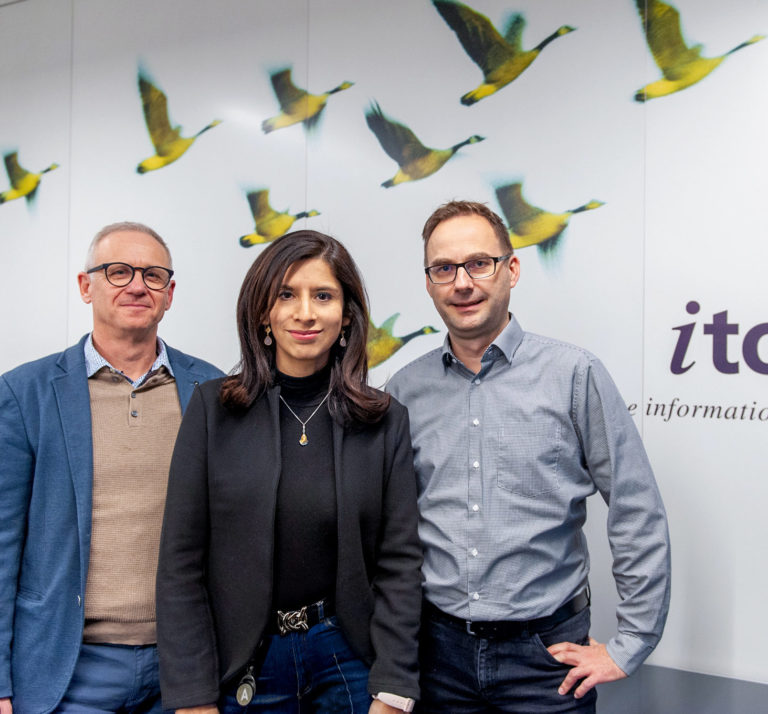
At itopia, we benefit from our diverse experiences and enjoy mutual learning.
What do you do in your role as Partner at itopia?
I accompany change initiatives – executive and strategic – around information systems. Within my role, I work with clients to provide advice and guidance on different topics around how to use IT for achieving their strategic goals. Therefore, I often translate between business and IT, for the best solution.
I started originally as a business analyst, and worked for some time in IT consulting and later leading strategic and big projects (> 100 Mio.), first at IBM and later as head of the project managers pool and business transformation (around 30 people) at Zurich Insurance. I have traveled the world and learned about different companies. Today, in addition to my different engagements as consultant, I can shape and drive forward the goals of the company as a partner and co-owner of itopia AG.
The topics that I encounter in this role are for example around enabling digital transformation and how you can translate new requirements from the customer onto the data models or towards legacy systems. For these challenges, we need forward thinking people, some with innovative ideas and also the ones with broad experience and who know the current systems.
I focus on creating an environment where the team can develop further and use their full potential towards the best solution. I am proud to say that within my company, we share a broad know-how and we learn from each other disregarding any age, gender or background. We trust in our joint skills and therefore, any voice matters. This is for me the value of true leadership, and that inspires me.
In the past, I had also declined leadership roles that did not involve any concrete change topics around business and IT. It was always clear to me that I wanted to stay in the interface between technology and people and to never lose the connection to these topics. I am convinced that women want to work in roles that are both technical – hence provide concrete value – and include people management, but it is a pity to see that sometimes women are being moved to go more towards people management only, because this is where others see their strength.
My passion is to figure out how we can best use technology to serve the business requirements. That also means that technology is an enabler that has to be understood from the business.
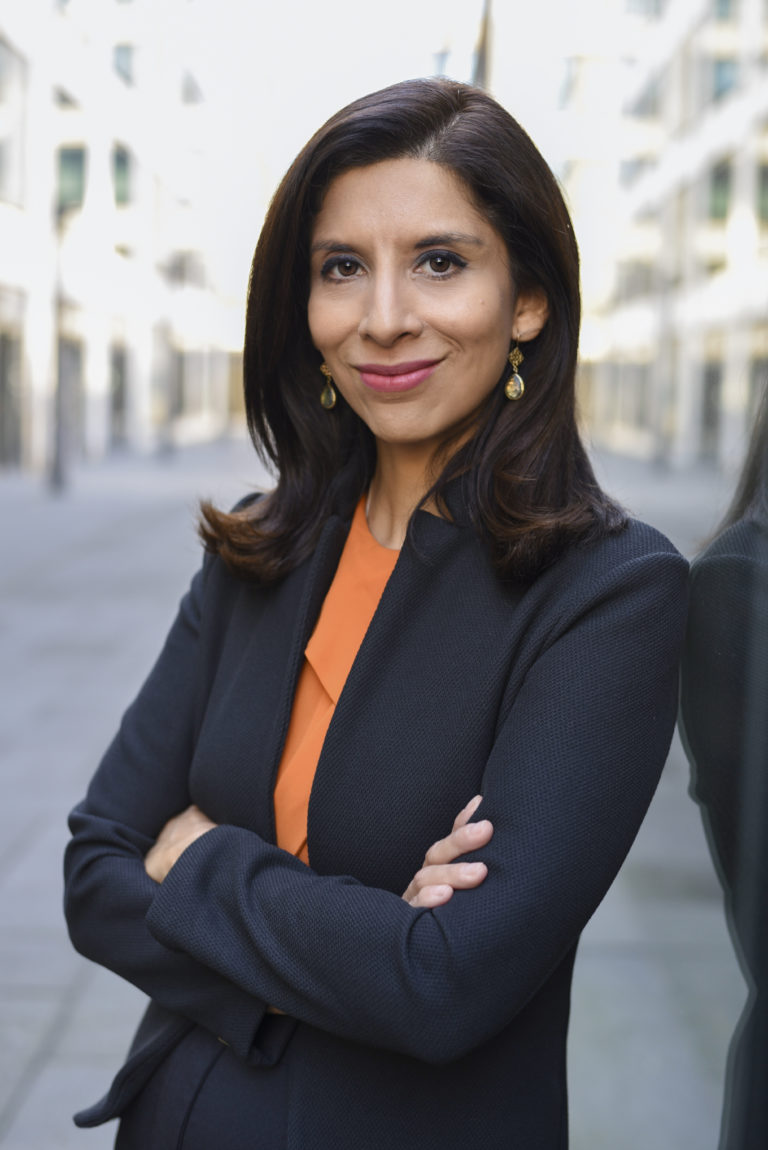
I am convinced that women want to work in roles that are both technical and include people management, but it is a pity to see when women are being moved towards people management only, because this is where others see their strength.
Where do you see the biggest gaps between the business requirements and what technology can offer?
On the topic of data. Most digital strategies include some sort of data management or even speak about “data-driven”, but often the understanding of what is required for the transformation is lacking. We need to ensure that we manage the data actively, for example, that we have proper business processes and can manage preferences and consent, in order to serve customers in the best trustful way.
Let’s look at the example of offering digital services to the customer. Today, the end customer expects easy and convenient interfaces, and does not care about silos within the company. However, well designed middle layers or micro-services can only rely on a sort of standardization from the business side, for example regarding the way of how we manage the data of the customer.
The less that happens, the more complex the system gets for storing complex, sometimes redundant, sometimes incoherent business logic. This comes at the cost of responsiveness of the user interface, and at how fast you can make edits and updates to the database.
Representatives from the business side might be unaware of these trade-offs. On top of that, we also need to ensure that the complex systems we are building today will also run & be used in the future. Maintenance is a process that does not generate a direct user value, but it is an important part of software development that should not be put off.
It is important for companies to raise awareness for these topics and build up knowledge. Data models are getting increasingly complex, including requirements regarding data privacy. The buzzword “Big Data” is a big promise which often stays unresolved. We still have companies stuck in basic analytics and need to find smart ways of solving some fundamental problems, while they long for more.
Topics such as customer experience, user journeys and design thinking are not new, but still pretty young for having created an impact on 20-30 years old legacy systems. In consulting, we had started on them in 2012 where many of the processes and teams in the companies were still organized in silos. The processes had to first be renewed so that we could even start to work with data.
Many of these topics related to changing the current enterprise architecture often come directly from the development teams and engineers which means they are also interested in building systems that add value to the end user and look towards what technology nowadays can offer to business.
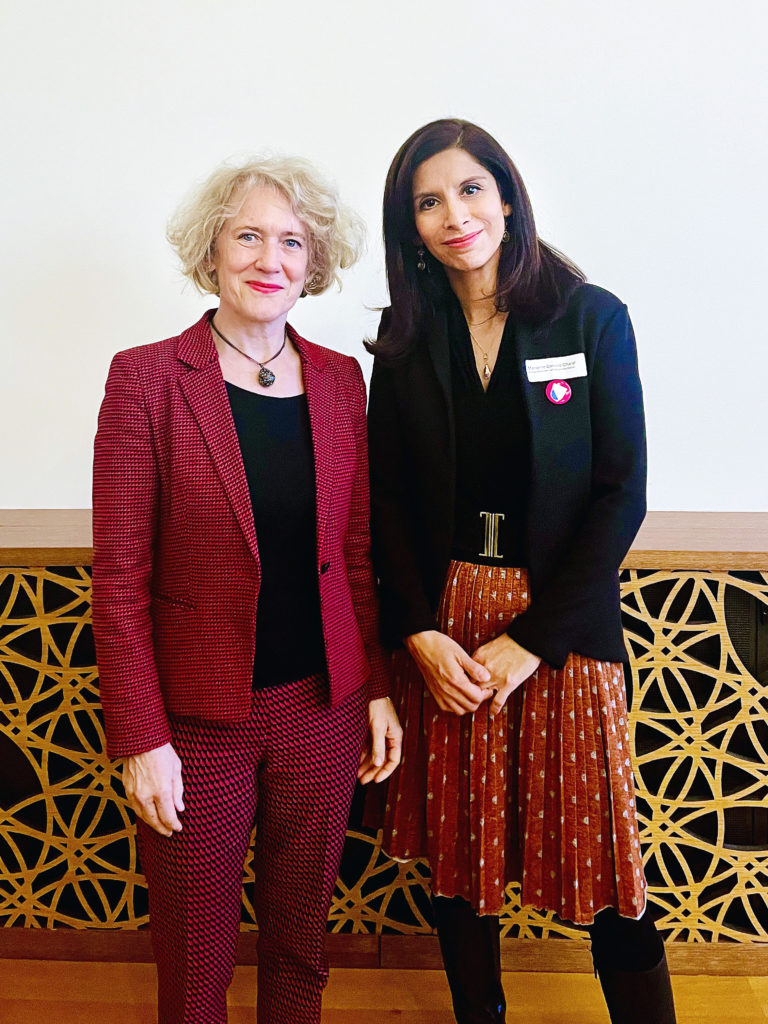
We have to remove barriers for equal opportunities so that we can support talents.
What else would you like to add for our community?
I was always an advocate of: Skills first. Disregarding race, social background or gender. However, a few years ago, I attended a lecture at ETH from a researcher who did studies in the area of women empowerment and gender equality. She concluded that there is a dilemma: While no woman who is competent and skilled will want to be a quota woman, we will need exactly these women as role models for others to aspire to.
Women who have built up something for themselves, do not want to stand in the shadow of a quota position. I could very much relate to that. During my Phd, I loved doing research and lectures, but I did not want to become a quota professor. At the end, I left academia due to my interest in practice. Nevertheless, I learned by now that the quota can help to accelerate the change, until we are there.
We are lacking role models, especially people of color, and there are skilled women today that need to take these seats, taking the risk of being flagged as quota women, until we prove what we can. Thereby, we can change the future. But there is also a responsibility there: We need skills behind the quota.
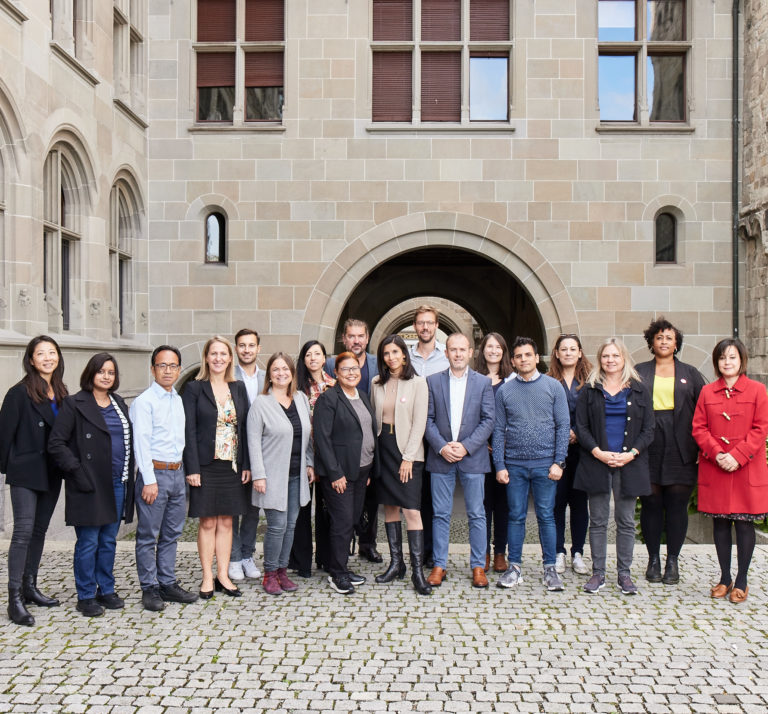
As a woman in a leadership role, you need to be ready to be a role model. I actively decided to become a role model, that’s one of the reasons I joined the board of the Council of Foreigners in Zurich.
As a woman in a leadership role, you need to be ready to be a role model. I actively decided to become a role model, that’s one of the reasons I joined the board of council for foreigners in Zurich. It is important to me that I make use of my voice as a foreigner, and that I can stand up for others. It’s not about selling yourself, but it’s about being an example, showing others that it can be done and moving beyond what has been seen as the frontier for “people like you”.
By the time I joined the board of council for foreigners, my daughter chose to be a class representative and she said to me: “Mama, I saw that you went into the board of the counsel for foreigners to use your voice, so I will be doing the same in school for my class.” So she ran for the position and was elected. And that’s what it’s all about, to inspire others with an example to have the confidence to grow and take the next step.
We have to remove barriers for equal opportunities so that we can support talents. According to OECD and other statistics, Switzerland is challenged with equity in education. Your educational path and consequently your career are dependent on the language, but also your social background and whether your parents have studied. Unfortunately, in the political arena, equity in education is sometimes even dismissed as unattainable, which is a typical knockout argument.
However – disregarding the political party – the principle is as clear as valid: To find ways to empower our children to develop their talents. And that’s what I am actively involved with, that children – no matter their background or story – have equal opportunities in life.
Besides that: I want to encourage all girls in tech: Trusting in yourself and investing in your abilities and your talent are key. Wherever you go, this is something you will always take with you, and will always lift you to new horizons.
We would like to thank Marianne for being an inspiration for anyone who is facing a language barrier in their career and for women who are looking to evolve into leadership roles in tech. Thank you Marianne for being a woman who inspires us! 💛
Author: Lisa Staehli

